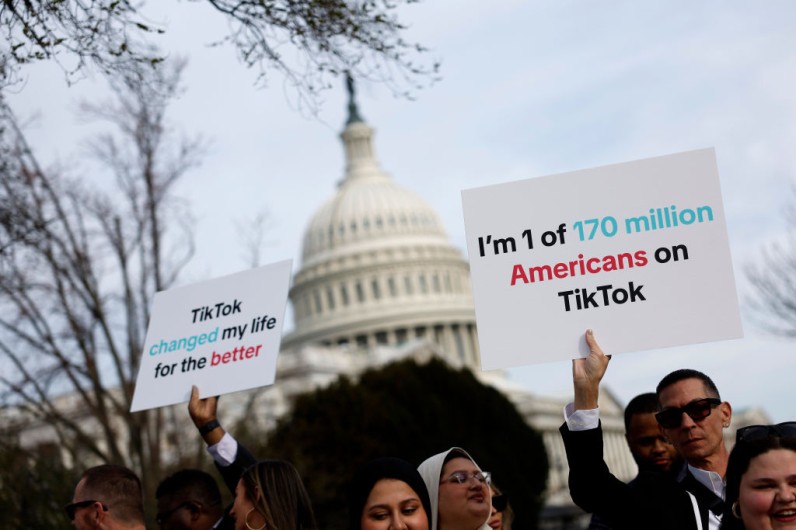TikTok and its parent company ByteDance have taken legal action against the US government over a law signed by President Joe Biden. This law could potentially lead to a nationwide ban on the popular short video app.
The lawsuit, filed in the Court of Appeals for the District of Columbia, argues that the law is unconstitutional and infringes on free speech protections.
TikTok Sues US Government Over Potential Ban
The law, signed by President Biden on April 24 as part of a broader foreign aid package, requires ByteDance to sell TikTok to an approved buyer by January 19, 2025. Failure to do so would result in TikTok's ban from US app stores and internet hosting services.
TikTok's lawsuit stresses the significant stakes involved in this legal battle. It questions whether US security concerns about TikTok's Chinese links outweigh the First Amendment rights of its 170 million US users. TikTok argues that the law stifles Americans' speech and prevents access to lawful information.
Meanwhile, the Federal Trade Commission (FTC) has reportedly launched an investigation into the social media platform's long-discussed data and security practices.

TikTok, ByteDance Sue Biden Over Ban Law, Citing Unconstitutionality
The petition filed by TikTok also challenges the constitutionality of the TikTok divest-or-ban law. TikTok asserts that Congress has never before passed a law that singles out and bans a specific speech platform. They claim that divesting its US operations within the law's timeline is impossible.
ByteDance also recently stated that if the company runs out of legal options to combat the legislation prohibiting the platform from being sold in app stores in the United States, it may consider shutting down its app instead.
Additionally, TikTok argues that Congress failed to provide evidence to support the need for the ban and disregarded a negotiated agreement developed with the Committee on Foreign Investment in the United States (CFIUS).
TikTok's legal challenge against the Biden administration's TikTok ban law raises fundamental questions about free speech, national security, and governmental overreach.







Join the Conversation